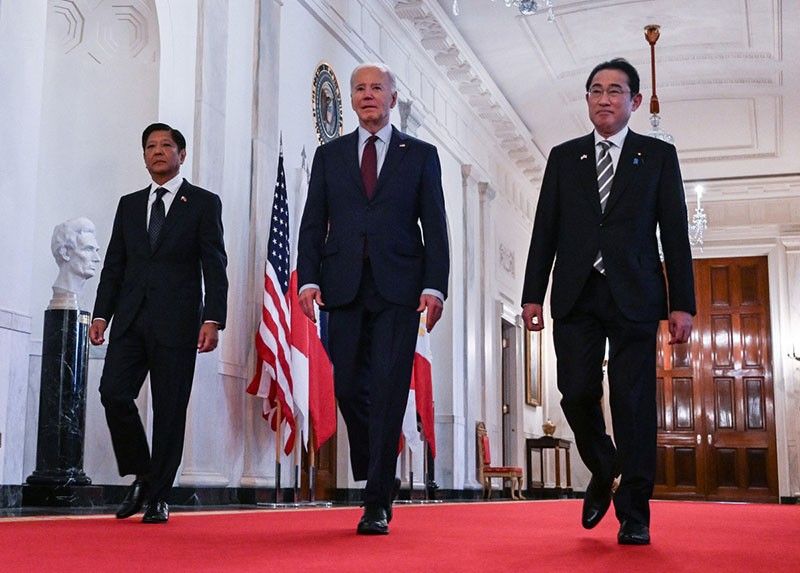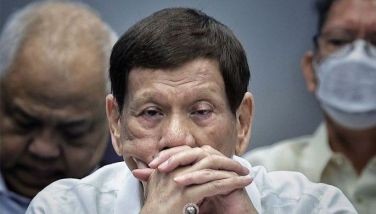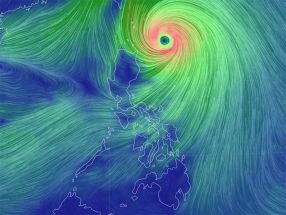Philippines, US, Japan hold talks to counter economic coercion

MANILA, Philippines — The Philippines renewed talks with the United States and Japan on working together to shield their economies from foreign countries' coercive economic practices.
Delegates of the three countries held an "informal trilateral discussion" in Manila on October 25 to reinforce their joint stance against the issue during the first Japan-US-Philippines Summit in April.
The trilateral meeting stressed the need for each country to build economic resilience and raise awareness on potential foreign tactics and practices of coercion.
Economic coercion refers to a nation's weaponization of economic tools, such as trade restrictions, targeted sanctions or aid cuts, to pressure another country into political concessions.
The statement on the trilateral meeting did not identify the country or countries that pose a threat via economic coercion, but Washington has regularly raised the issue of China's coercive tactics as a matter of national security with its allies in the region.
"The participants shared their concern over and strong opposition to economic coercion and a commitment to building economic resilience," the US State Department said in a statement on October 25.
"They also affirmed that the three countries intend to cooperate to raise awareness of this issue among the international community and enhance their resilience to and response capabilities to potential economic coercion," it added.
The discussion was chaired by Ma. Corazon Halili-Dichosa, executive director for Industry Development Services at the Board of Investments in the Philippines.
What went before
During their first trilateral talks in April, the Philippines, US and Japan issued a joint statement expressing their objection to economic coercion and willingness to deepen their cooperation in fighting the practice.
A month before that, the Chinese Embassy in Manila called out the Philippine ambassador to the United States Jose Manuel Romualdez for claiming China could use trade restrictions to pressure the Philippines over the South China Sea dispute, saying his statement was "deplorable" and "in ignorance of basic facts."
The embassy, in its statement in March, said China's economic relations with the Philippines has brought "tremendous benefits to both countries" and that the accusation is forms part of a "malicious smear campaign against China."
Without singling out the United States, the embassy said: "Who invented 'economic coercion'? Where did it originate? Who weaponizes economic power and gets addicted to sanctions? The questions are self-explanatory."
The US and five other countries — Australia, Britain, Canada, Japan and New Zealand — issued a joint declaration in 2023 that they oppose the use of trade-related economic coercion to force or influence nations into complying with third-party countries' demands.
The US has also been accused by Chinese officials of using economic coercion to achieve its aims through its imposition of sanctions on entities and individuals.
A Washington Post investigation in July found the US has imposed three times as many sanctions as any other country or international body, affecting a third of all nations with some form of financial penalty on individuals or organizations.
For instance, under Trump, the US in 2017 imposed severe sanctions on Venezuela with the goal of ousting Nicolás Maduro's regime in support of the opposition. These sanctions targeted the oil industry and key officials, aiming to cut off revenue and pressure Maduro to step down.
Instead, the sanctions worsened Venezuela's economic collapse, causing severe shortages of food, medicine, and fuel, leading to hyperinflation, widespread poverty, and a mass exodus of Venezuelans seeking refuge abroad.
- Latest
- Trending





























